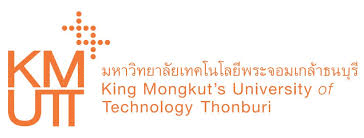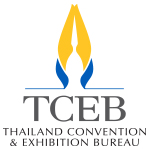SS01: Assistive Technology
“Assistive technology is an umbrella term that includes assistive, adaptive, and rehabilitative devices for people with disabilities and also includes the process used in selecting, locating, and using them. Assistive technology promotes greater independence by enabling people to perform tasks that they were formerly unable to accomplish, or had great difficulty accomplishing, by providing enhancements to, or changing methods of interacting with, the technology needed to accomplish such tasks.”
[Online]. Available http://www.wikipedia.org/
Assistive technology includes any equipment, software application or system that is used to increase, maintain, or improve the functional capabilities of individuals with disabilities. However, not only disability people need the assistive technology but also the elderly and normal people who have a limited functions device.The assistive technology may embedded on the mobile device or PC. All original research paper or report which related to the fields are welcome to submit to this session.
SS02: Smart Health Care/ Health Monitoring Technology
Mobile and wearable devices (such as smart phone and smart watch) are held by users almost all the time. These devices be able to capture the activities of the users and analyse their activities then predict (report) the user's health condition. Other technologies that enhance the health care system (such as WATSON which currently are adapted to the real world smart healthcare system) are also in this category. The WATSON team’s member will provide an invited talk in the conference too.
SS03: Technology Acceptance
Organizer:
Dr. Vithida Chongsuphajaisiddhi, King Mongkut’s University of Technology Thonburi, Thailand
The success of technology should not be determined based on only the technological or functional achievement. If the technology is not accepted and used by target users or its expected benefits do not materialize, the developers cannot claim a complete success. User acceptance of different technologies in different contexts can be affected by various factors differently. Understanding of such factors could help technology developers and providers to deliver technologies successfully.
SS04: Smart Communications
Organizer:
Dr. Vajirasak Vanijja, King Mongkut’s University of Technology Thonburi, Thailand
Dr. Pongpisit Wuttidittachotti, King Mongkut's University of Technology North Bangkok, Thailand
Dr. Therdpong Daengsi, King Mongkut's University of Technology North Bangkok, Thailand
The Internet is the largest network. The Internet architecture is fundamentally a “client-server" architecture, with limited service capability and static routing/addressing. The intriguing interplay of local and topological dynamics makes robust self-organization possible in these networks. Recently important breakthroughs in the understanding of adaptable networks have been made and it is becoming more apparent that they could hold the key to many phenomena observed in a wide variety of applications. The goal of this special session is to promote research and development in Intelligent network which therefore presently receive rapidly increasing attention from researchers from very different fields including Genetic Algorithm, Artificial Intelligent, Practical Swarm Optimisation, Evolutionary Multi-objective Optimisation Algorithms, Evolutionary Algorithm, etc. The next wave of research in the field of Internet Architecture should solve remaining problems and bring the most promising options closer to deployment.
SS05: Ambient intelligence
Organizer:
Dr. Praisan Padungweang , King Mongkut’s University of Technology Thonburi, Thailand
In Smart Home based on ambient intelligence, it is intended to investigate learning or prediction techniques in order to understand, help, advice and enhance the way user perform their activities of daily living including activities that difficult or impossible for them to perform. This special session aims to bring together researchers, practitioners, and students around the world to exchange and share their experiences and research results on data mining, pattern recognition, machine learning and artificial intelligence that can be applied to assistive technologies. Topics of interest include, but are not limited to: Knowledge Discovery, Clustering, Classification, Intelligence Information Systems, Learning Theory, Image and Video Analysis, Information Access, Smart Services, Information Retrieval Systems, Ambient Assisted Living, Energy Efficiency, Cognitive and Emotional Awareness, Behavior Modeling, Intention Recognition, Human Interaction with Autonomous Systems, Security, Privacy and Trust.
SS06: Business Process Management for Smart Communities
Organizer:
Dr. Worarat Krathu, King Mongkut’s University of Technology Thonburi, Thailand
Process is everywhere. It exists not only in profit organizations, but also non-profit as well as governmental organizations. Every organization has to manage their processes in order to improve and maintain operations and services. The concept of Business Process Management (BPM) has emerged as the discipline that includes methods, techniques, and tools for managing processes. It includes the activities such as identifying, modeling, executing, analyzing and controlling processes. This topic focuses on the application of BPM methods, techniques, as well as tools for managing and improving public services processes (e.g., emergency services, waste management, transportation, or other communities- related services.). In other words, any applications of BPM contributed for leading the community to (or closer to) the smart city, where everything is well managed and optimized for its citizens, are of interest. More specific topics include, but are not limited to:
- • Shared resources management
- • Real-time process/resource monitoring and controlling
- • Measurement of process performance
- • Prediction and simulation of processes
- • Modeling and design of processes
- • Execution of processes
Cloud computing is, undoubtedly, one of the main existing computing paradigms nowadays. In the last years, it raised the interest of both academic and industrial worlds thanks to their interesting properties, such as elasticity, flexibility, or computational power, among many others. Cloud computing provides a stack composed of different kinds of services to users: Infrastructure as a Service (IaaS), dealing with resources as servers, storage, or networks; Platform as a Service (PaaS), which provide an operating system as well as a set of tools and services to the user; or Software as a Service (SaaS), that allows providers to grant customers with access to licensed software.
The BusinessClouds workshop provides vibrant opportunities for researchers and industry practitioners to share their research experience, original research results and practical development experiences on specific new challenges and emerging issues. Workshop will provide contributions to significant topics that are under interest of IAIT2015 Conference. Among others, we suppose strong contributions in such areas like:
- • Cloud/Grid Computing (Resource sharing/monitoring, Data storage, Replication, load balancing, Green cloud systems and networking, Mobile cloud system design, and others).
- • Modeling and Simulation in Cloud Applications (Combinatorial Optimization, Computational Finance, Computational Neuroscience, Computational Biology Computational Physics and Chemistry and others)
- • Applications for Cloud Brokering, Internet Shopping (Combinatorial Optimization, Exact algorithms, Heuristic approaches, Evolutionary algorithms, Swarm Intelligence, Optimization algorithms, and others.)
For more detail click


